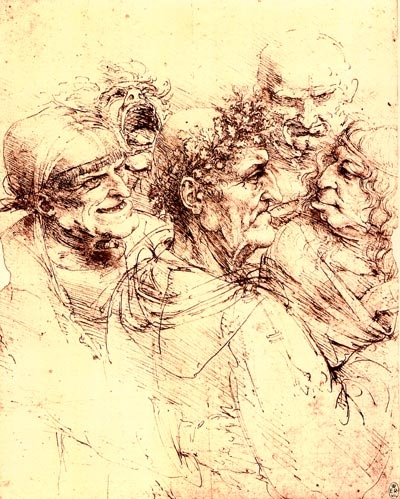A couple of years ago, I read my first Natsuo Kirino book, Out, for the Flips Flipping Pages Japanese book discussion. Natsuo Kirino is one of Japan’s top female crime/detective fiction novelists, winning both the Grand Prix for Crime Fiction, Japan’s top mystery award and the Edgar Award for Out. I enjoyed reading Out back then, and so I set out to hunt down Kirino’s other books.
Earlier this year, my cousin gave me a copy of Grotesque, another novel by Natsuo Kirino. I figured it was going to be another chilling read, so I’ve been saving it for Halloween this year.
 Grotesque is a dark tale that profiles the lives of three Japanese women: the unnamed narrator, her sister Yuriko, and her old schoolmate Kazue Sato.
Grotesque is a dark tale that profiles the lives of three Japanese women: the unnamed narrator, her sister Yuriko, and her old schoolmate Kazue Sato.
The story begins with the unnamed narrator, who is half-Swiss and half-Japanese. She looks back on her childhood growing up in a biracial family, and her long-running rivalry with her freakishly beautiful sister Yuriko. Now middle-aged, the narrator reveals that Yuriko grew up to be a prostitute, and she was murdered two years ago. Less than a year later, their former classmate Kazue Sato, also a prostitute, died in a similar manner.
The narrator recounts their days at posh Q School, how she despised Kazuo for her desperate efforts to be popular, and how Yuriko continued to make her life hell. The story reveals how the three girls, in their own ways, struggled against the hierarchical elitism of their school, and how this influenced the decisions they made with their lives.
The novel also presents alternate points of view, as the narrator has gotten ahold of journals allegedly written by Yuriko and Kazue, as well as statements made by their murderer.
I found that Grotesque was a little more difficult to get into than Out, for a number of reasons. Out had a more interesting premise, simply stated but brilliantly executed. The premise of Grotesque is a bit vague and difficult to grasp, and although Kirino manages to tie it all in at the end, it doesn’t fly quite as well.
Both novels feature a shifting perspective, but the characters from Out are easier to like; the daily trials of the characters in Out are more approachable and more compelling than reading about middle-aged women reliving the angst of their teenage years.
Kirino does put her trademark stamp on Grotesque, though, once again showing us a Japan we don’t normally see, a view of its gritty underbelly, riddled with desperation, loneliness, violence, and cruelty. The unreliable narration also invites much rumination on the events that lead up to the murders.
I read the book much longer than I had hoped, as the psychological elements of the novel outweighed the noir, only to be disappointed by the abrupt and disjointed ending. As I’m writing this, I find out that the translation was censored, and a whole chunk of the conclusion — considered taboo — was taken out of the book! Rats! I feel so cheated because of that, and I’m betting the ending would have made more sense if they hadn’t touched it.
If you haven’t read Natsuo Kirino yet, I say, read Out and skip Grotesque — if I had known how this book would turn out, I would have.
***
Grotesque, trade paperback, 2/5 stars
Book #151 for 2010
Book #5 for the Chunkster Challenge (467)
Cover photo: Five Grotesque Heads by Leonardo Da Vinci
[amazonify]::omakase::300:250[/amazonify]



Thanks for this review. I read Out two years ago, and I am a bit hesitant to buy Grotesque because not only is it expensive, I am also not sure if it is worth the buy.
Have you tried reading Real World? Perhaps that one is good.
Hey Will. I don’t have a copy of Real World yet, although from what I see the reviews are middling. Out is clearly her best work, maybe the others are lost in translation :s
The only book I’ve read from a Japanese author is the memoir by Mineko Iwasaki, called “Geisha of Gion”. If I remember correctly, she sued Arthur Golden for writing “Memoirs of A Geisha” and in her memoir, sought to correct certain alleged misconceptions that Golden wrote on being geisha, Mineko being a true geisha herself. Since then I haven’t read any other Japanese-authored book. Maybe I’ll give “Out” a try when I find a copy. :)
Oh, I’ve seen that. I’ve only read Memoirs of a Geisha. Natsuo Kirino’s works are a different genre altogether, quite different from the geisha novels.